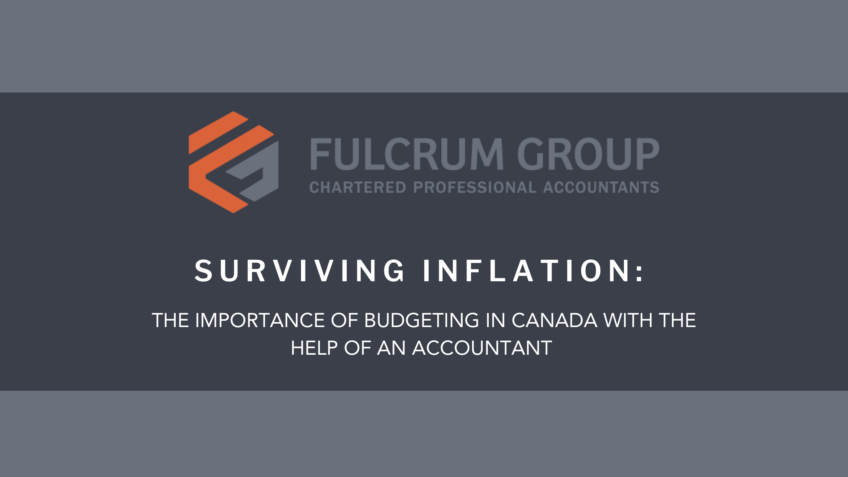Surviving Inflation: The Importance of Budgeting in Canada with the Help of an Accountant
By Ian Penner
Budgeting is a crucial aspect of financial management, particularly in a high-inflation environment. Inflation, defined as the increase in the price of goods and services over time, can make it challenging for individuals and businesses to manage their finances effectively. In Canada, the inflation rate has been on the rise over the past year, making it more important than ever to budget wisely. In this blog post, we will explore the importance of budgeting in a high-inflation environment and discuss how an accountant can help with this process.
One of the most significant challenges of a high-inflation environment is the decrease in purchasing power. As prices rise, the value of money decreases, and individuals and businesses need to spend more money to purchase the same goods and services they were able to buy for less previously. This makes it more challenging to plan for the future and manage expenses effectively. By creating and sticking to a budget, individuals and businesses can better control their spending and plan for inflation-related increases in prices.
Another challenge of a high-inflation environment is the uncertainty it creates. It is difficult to predict how prices will rise and which goods and services will be affected the most. A budget can help manage this uncertainty by providing a framework for financial decision-making. By tracking expenses and income, individuals and businesses can adjust their budgets as needed to account for changes in prices and market conditions.
An accountant can be a valuable resource in the budgeting process, particularly in a high-inflation environment. Accountants have the knowledge and expertise to help individuals and businesses navigate the complexities of inflation and manage their finances effectively. They can help create a realistic budget based on income and expenses, taking into account the potential impact of inflation. They can also help monitor expenses and income, identify areas where costs can be reduced, and provide guidance on investment strategies that can help mitigate the effects of inflation.
One strategy that an accountant may recommend is to invest in assets that are likely to appreciate in value during inflationary periods. For example, real estate and gold are often considered inflation hedges because their value tends to increase as prices rise. An accountant can help identify opportunities for investment in these types of assets and provide guidance on how to manage and monitor them effectively.
In addition to providing guidance on investment strategies, an accountant can help individuals and businesses manage debt in a high-inflation environment. High inflation can make it more challenging to pay off debt because the value of money is decreasing over time. An accountant can help develop a debt management plan that takes into account the potential impact of inflation and helps individuals and businesses pay off debt as quickly and efficiently as possible.
Finally, an accountant can help individuals and businesses prepare for the unexpected in a high-inflation environment. Inflation can lead to economic instability, which can increase the risk of job loss and other financial hardships. An emergency fund can provide a financial safety net in case of unexpected expenses or loss of income.
In conclusion, budgeting is critical in a high-inflation environment like the one Canadians currently face. Inflation can create uncertainty and decrease purchasing power, making it challenging to manage finances effectively. By creating and sticking to a budget, individuals and businesses can better control their spending and plan for inflation-related increases in prices. An accountant can be a valuable resource in this process, providing guidance on investment strategies, debt management, and emergency preparedness. By working with an accountant, individuals, and businesses can navigate the complexities of inflation and manage their finances effectively in a high-inflation environment.



